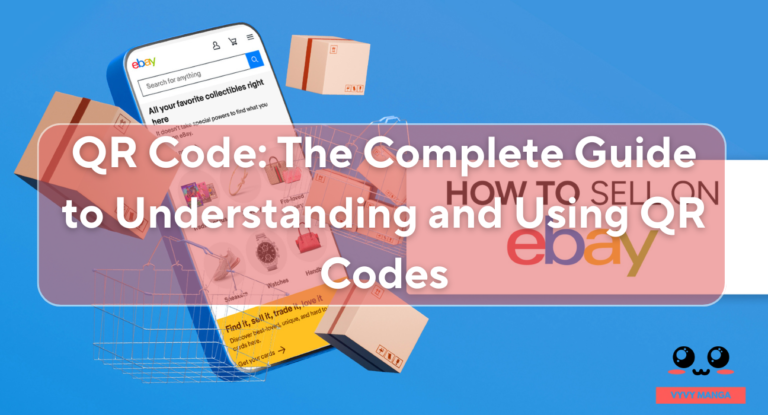The Influence of Search Engines on E-commerce Websites

Search engines play a critical role in driving traffic to e-commerce websites. Most online shopping journeys begin with a search engine query, and businesses that rank higher in search results are more likely to capture potential customers. Tools like sumo search can help businesses improve their search visibility and gain a competitive edge. The influence of search engines on e-commerce websites has grown significantly, as online businesses rely on search visibility to drive sales, increase brand awareness, and outperform competitors. In this article, we’ll explore the profound impact that search engines have on e-commerce and how businesses can optimize their presence to thrive.
The Role of Search Engine Optimization (SEO) in E-commerce
Search engine optimization (SEO) is essential for any e-commerce website looking to attract organic traffic. SEO helps e-commerce businesses improve their visibility in search engine results, enabling them to appear when potential customers search for relevant products or services. Implementing proper SEO strategies, such as keyword optimization, meta tags, and content creation, increases the chances of ranking higher.
For e-commerce sites, focusing on product-specific keywords and long-tail keywords is key. This allows businesses to capture more targeted traffic from users who are closer to making a purchase. By improving their SEO, e-commerce websites can significantly enhance their reach and convert more search engine users into customers.
How Search Engines Drive Organic Traffic to E-commerce Sites
Search engines are the primary source of organic traffic for e-commerce websites. When potential customers search for a product, they are most likely to click on the top results that appear on the first page. Websites that invest in SEO and rank high for relevant keywords attract more visitors, which leads to increased conversions and sales.
Organic traffic is highly valuable because it doesn’t require businesses to pay for advertising. Instead, it focuses on improving search engine rankings through optimization strategies. This long-term approach ensures that businesses consistently attract relevant traffic, making SEO an essential tool for success in the competitive e-commerce landscape.
The Impact of Paid Search Advertising on E-commerce
While organic traffic is vital, paid search advertising is another influential factor that search engines offer for e-commerce websites. Through platforms like Google Ads, businesses can bid on keywords and display ads prominently in search results. These ads appear above or alongside organic results, increasing visibility and click-through rates.
Paid search ads are especially useful for e-commerce websites looking to quickly generate traffic, especially for new products or during promotions. By strategically investing in paid ads, businesses can drive targeted traffic to their sites, leading to higher conversion rates.
How Product Listings Influence Search Engine Rankings
For e-commerce websites, product listings have a direct influence on search engine rankings. Search engines analyze product descriptions, images, and customer reviews to determine the relevance and quality of the product page. Optimizing product listings by using relevant keywords, writing clear descriptions, and including high-quality images helps improve the search engine ranking of product pages.
Furthermore, structured data such as schema markup can be implemented to help search engines better understand the content of a product page. This can lead to rich snippets, which display additional information such as prices and ratings in the search results, increasing the likelihood of clicks and conversions.
Mobile Optimization: A Key Factor for E-commerce SEO
With the increasing use of mobile devices for online shopping, mobile optimization is now crucial for e-commerce websites. Search engines prioritize mobile-friendly websites in their rankings, meaning that e-commerce sites that are optimized for mobile will likely rank higher.
Businesses need to ensure their websites have a responsive design, fast loading times, and seamless navigation on mobile devices. Mobile optimization not only improves the user experience but also increases the chances of ranking higher in search engine results. Given that a significant portion of e-commerce traffic comes from mobile devices, mobile optimization is essential for any e-commerce SEO strategy.
Local SEO and E-commerce: The Power of Location-Based Searches
Local SEO plays a significant role for e-commerce businesses that also have physical stores or cater to specific regions. Local SEO helps e-commerce websites appear in location-based search results, making it easier for customers to find nearby stores or services.
Optimizing for local SEO involves including location-specific keywords, setting up Google My Business profiles, and ensuring that the business’s name, address, and phone number (NAP) are consistent across the web. For e-commerce websites with physical locations, local SEO can drive both online traffic and foot traffic to brick-and-mortar stores.
The Role of Content Marketing in E-commerce SEO
Content marketing is another powerful strategy for improving search engine visibility in the e-commerce industry. Creating valuable, informative content related to products and industry trends can boost a website’s SEO performance. Blog posts, how-to guides, and product tutorials are great examples of content that can attract visitors from search engines.
By incorporating keywords naturally within the content, businesses can improve their chances of ranking for a variety of search queries. Content marketing not only enhances SEO but also helps establish authority and trust with potential customers, which can increase conversion rates over time.
The Importance of Customer Reviews in Search Engine Rankings
Customer reviews play a crucial role in influencing search engine rankings for e-commerce websites. Search engines consider reviews as a trust signal, and websites with numerous positive reviews tend to rank higher. Additionally, product reviews provide fresh and user-generated content, which search engines favor.
Encouraging customers to leave reviews and responding to them can enhance both the business’s online reputation and its visibility in search results. Incorporating reviews into product pages also helps improve the user experience and builds trust with potential buyers.
The Impact of Search Engine Updates on E-commerce Websites
Search engines regularly update their algorithms to improve the quality of search results. These updates can significantly impact e-commerce websites, especially if they rely heavily on organic traffic. Staying informed about algorithm changes and adapting SEO strategies accordingly is essential to maintaining a strong presence in search results.
E-commerce businesses should regularly audit their websites to ensure they comply with search engine guidelines. This includes optimizing for new ranking factors, improving page speed, and ensuring that the website provides a great user experience. Staying up-to-date with search engine updates helps e-commerce sites stay competitive and avoid penalties.
Conclusion: The Influence of Search Engines on E-commerce Websites
The influence of search engines on e-commerce websites is undeniable. From organic traffic to paid advertising, search engines are a driving force behind online sales and conversions. By optimizing for SEO, creating valuable content, and staying updated on search engine trends with resources like Decoratoradvice, e-commerce businesses can improve their rankings and thrive in the competitive digital marketplace. Ensuring that your website is mobile-friendly, product listings are optimized, and customer reviews are leveraged will help your e-commerce site succeed in search engines and attract more potential customers.






